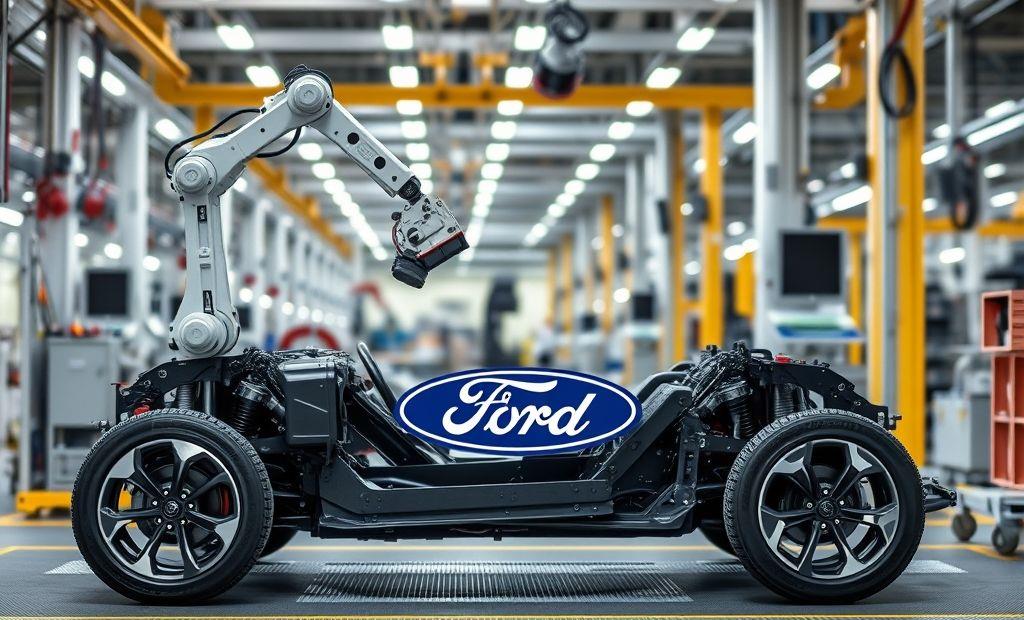Ford Reinvents EV Production, Ditching Assembly Line

Ford Rethinks EV Manufacturing: A New Approach Ford is revolutionizing its manufacturing process for electric vehicles (EVs) by moving away from Henry Ford’s traditional assembly...
⏱️ Estimated reading time: 2 min
Latest News
Ford Rethinks EV Manufacturing: A New Approach
Ford is revolutionizing its manufacturing process for electric vehicles (EVs) by moving away from Henry Ford’s traditional assembly line. This bold move aims to reduce costs and boost EV production in America, signaling a major shift in the automotive industry.
Why Ditch the Assembly Line?
The conventional assembly line, a cornerstone of mass production, has served the automotive industry for over a century. However, Ford believes that a new approach is necessary to efficiently produce low-cost EVs. This transformation addresses:
- Cost Reduction: Streamlining production processes helps lower manufacturing expenses.
- Efficiency Improvement: New methods can lead to faster and more effective EV production.
- Innovation: Embracing innovative techniques keeps Ford competitive in the rapidly evolving EV market.
Ford’s Innovative Manufacturing Strategy
Instead of the traditional assembly line, Ford is implementing a more flexible and modular system. This involves:
- Modular Assembly: Breaking down the EV assembly into smaller, manageable modules.
- Flexible Workstations: Utilizing adaptable workstations that can handle various tasks.
- Advanced Robotics: Incorporating robots and automation to enhance precision and speed.
The Impact on American EV Production
Ford’s revamped manufacturing approach has significant implications for EV production in America:
- Increased Competitiveness: Lower production costs make Ford’s EVs more competitive in the market.
- Job Creation: The shift could lead to new job opportunities in advanced manufacturing and robotics.
- Economic Growth: A thriving EV industry contributes to overall economic growth and sustainability.
The Future of EV Manufacturing
Ford’s pioneering move could set a new standard for EV manufacturing. Other automakers might follow suit, leading to widespread adoption of innovative production methods. This transformation promises to reshape the automotive landscape and accelerate the transition to electric mobility.
Related Posts
Bluesky Enhances Moderation for Transparency, Better Tracking
Bluesky Updates Moderation Policies for Enhanced Transparency Bluesky, the decentralized social network aiming to compete...
December 11, 2025

Google Maps: Gemini Tips, EV Charger Predictions & More!
Google Maps Gets Smarter: Gemini Tips & EV Updates Google Maps is enhancing user experience...
December 9, 2025

US, UK, Australia Sanction Russian Web Host
Crackdown on Russian ‘Bulletproof’ Web Host The United States, United Kingdom, and Australia have jointly...
December 6, 2025











Leave a Reply